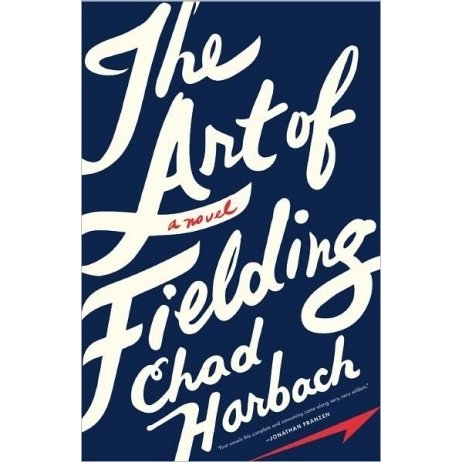Let's Talk About 'The Art of Fielding' Lawsuit
Chad Harbach’s story continues.

If you remember the year 2011 when The Big Book of the Year was The Art of Fielding and you don’t want to die after reading that clause, take a moment to read over the allegations of one Charles Green against the one Chad Harbach in the matter of wrongfully appropriating elements of the former’s manuscript, Bucky’s 9th, and interpolating them into the latter’s long-languishing first novel (which then sold for $665,000 and debuted to All The Acclaim):
Whether or not you liked the book is basically irrelevant to this conversation, because the thing about The Art of Fielding is that all these years later, it continues to be A Case Study in Book Publishing. You may recall that Keith Gessen wrote a whole THESIS on the matter in Vanity Fair, as well as a 20,000-word e-book titled How A Book is Born, from his perspective as Chad’s Harvard College roommate, n+1 cofounder, and close friend. (The book should have been titled How A Unicorn is Born, but whatever.) The book was and is a darling of the publishing and literary world, and even garnered a few profiles of Chris Parris-Lamb, the hot young literary agent who negotiated the nearly unheard-of deal for a first novel.
What’s fascinating to me about this lawsuit is that, essentially the accusation boils down to “he did it better* than me.” Which I realize is unfair and reductive, because there are real and legal definitions of intellectual property that I am not personally educated in, and it’s hard to say at what level a plot point is more “baseball novel cliché” than “stolen baseball novel cliché.” Plot points don’t usually make the book! Except when they do, of course. When you read this lawsuit, you might think, as I did, “yeah, that sounds pretty bad!” But who in their right mind would lift elements from an unsuccessful manuscript in order to magically (yes, the claim uses the phrase “magic wand”) make a successful one? Generally speaking, spurious “you ripped me off” lawsuits based not on direct plagiarism but on plot are very bad, precedent-wise. This sort of thing happening to a Major book is not a great sign and I wouldn’t be surprised if we see (or hear through the grapevine) about others.
But the main thing about The Story Of This Book (of which this lawsuit is just one chapter) is exactly that: essentially, whenever we’re talking about The Art of Fielding, we’re always going to be talking about how it came to be. The lawsuit also illuminates (again: spuriously?) the specific conversations around it having been unfinished for so long, with commentary from Gessen on the seemingly radical improvement around 2009 (around or just after Green alleges this thievery would have taken place). Doesn’t everything look suspicious? And what about the 2004 MFA thesis version of The Art of Fielding, roughly speaking the first half of what is now the book, wherein, no apparent Green-isms factor (according to Green)? Harbach’s agent disputes this firmly:
He has dozens of time-stamped files of the novel from the years he worked on it, which will show that the ‘uncanny parallelisms’ Mr. Green cites were in place as early as 2004, many from its very conception in 2000, and numerous classmates, professors and writing group peers can attest to this fact.
Ultimately the case strikes me as impossible to prove, and also Green didn’t register his copyright until 2012, so it does not look good. Probably they will settle and we will all be able to argue about this at cocktail parties in perpetuity or until the nukes, whichever comes first! But maybe Gessen should keep writing—this already looks to me like a good screenplay for an Adaptation-style metamovie; you wouldn’t even have to change the names of the books: The Art of Fielding (refined, literary, double entendre) vs. Bucky’s 9th (scrappy, prosaic). It won’t change the fact that the book wasn’t even very good.
*more successfully
